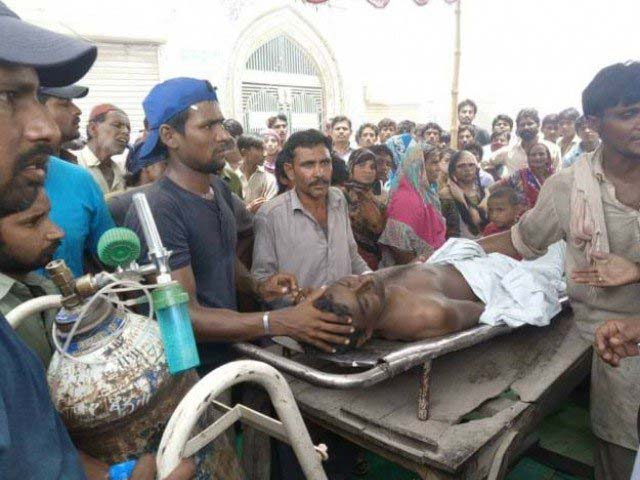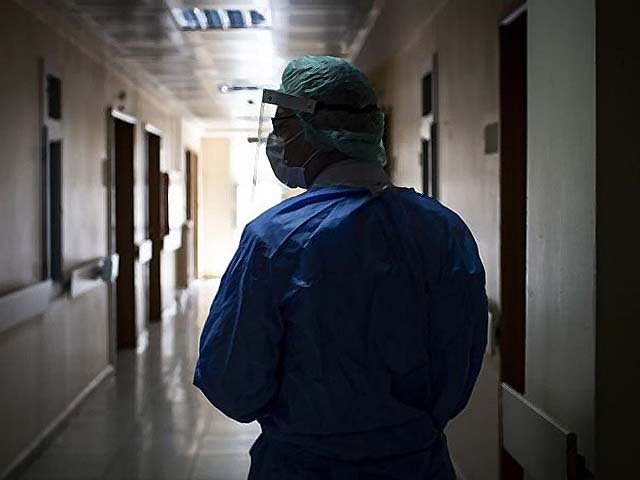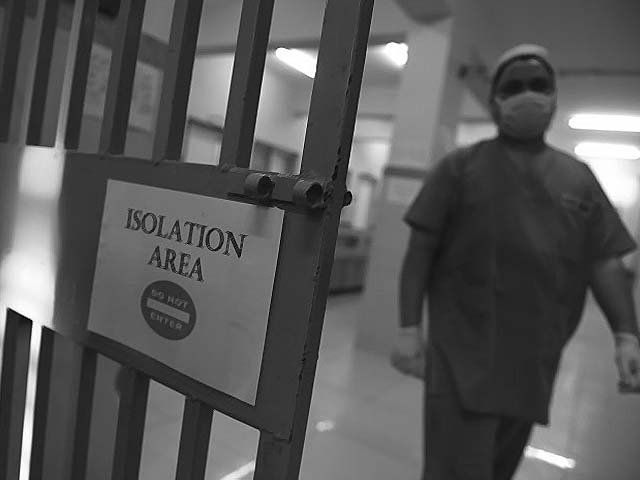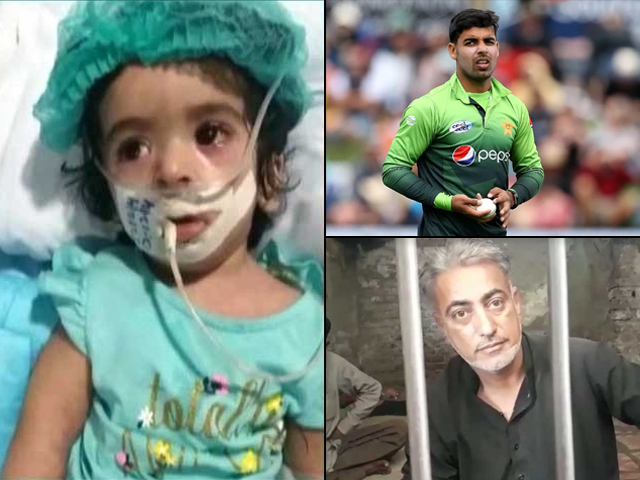
Ifran Masih's family and community members staged a sit-along with his body on the inter-district road connecting Umerkot. PHOTO: TWITTER
Refusing to treat sweepers in Ramazan only highlights our doctors’ unethical unprofessionalism
The doctor claimed that touching the body of the sweeper covered in effluent would make him impure and break his fast.
“Primum non nocere” is Latin for “first, do no harm”. Although not overtly found in the text of the original Hippocratic Oath, the message in that Latin phrase holds firm for students making the transition from medical apprenticeship to medical practice.
Scholars have widely attributed the oath to Hippocrates, the father of western medicine. As their rite of passage, young doctors graduating from medical schools the world over take some modern version or another of the oath, several in their own languages.
Medical schools in Pakistan follow suit in terms of the oath being taken by students prior to practicing as independent doctors, with valid medical licenses issued by the Pakistan Medical and Dental Council (PMDC).
How many of those individuals actually understand and practice the oath in letter, let alone spirit, is another story.
Today, I was reminded of the oath when I came across the Pakistani headline, “Sewer cleaner dies as ‘fasting’ doctor refuses to touch patient”.
A sweeper had stepped into a blocked gutter with the intention to open the sewage line, and while inside, he apparently came across a pocket of poisonous gases (likely hydrogen sulphide and methane) that he inhaled and succumbed to. He was rushed by his family to the nearby hospital where a doctor on duty refused to treat the critically ill sweeper covered in sewage water. The doctor claimed that while fasting, touching the body of the sweeper covered in effluent would make him impure and thus break his fast.
I was more saddened than shocked upon reading the news item – similar episodes had occurred in Pakistan in the past, and continued to do so into the 21st century.
“It’s as if I would refuse to treat a smelly baby just because it peed or pooped in the diaper”, was the first thought that crossed my mind.
I then recalled scores of times when my colleagues or I had been coughed, sneezed, spat, vomited, urinated or defecated on, and the countless number of soiled clothes of ours because of presumptively infected, nasty bodily secretions or fluids received from our patients. None of those incidents had deterred us from catering to our patients’ medical needs.
On further introspection, I realised that it was simply ‘the cost of doing (medical) business’. Irrespective of bodily filth that us doctors and nurses were exposed to, I couldn’t recall a single health care professional within my circles who had refused to treat a patient simply because he or she was covered in filth of any sort.
As physicians and nurses, we were beholden to the premise, and promise, to treat all, regardless of age, gender, religion, filth on the body, or lack thereof. By not treating the person in extremis, by not doing what was expected of me as a medic, I was doing grievous harm. By not acting within my capacity as a physician to save a life, any life, became a sin of omission. By creating distinctions in my head about whom to treat or not, based on religion, caste, socio-economic status, my fasting status, or else, was in complete disregard with the essence of being a healer. And it went without saying that by doing so, I was placing myself on a slippery slope, ethically and morally, potentially medico-legally too.
It’s a well-known fact that the vast majority of our sweepers in Pakistan, our fellow citizens, are from a few minority religions. Shouldn’t the holiest of months be a reason enough for us to be doubly thankful to those who ensure our gutters are functioning adequately – don’t we owe it to them? Why take them for granted? I am not in a position to judge anyone, let alone the doctor who refused to treat a patient in distress. However, there is something absurdly wrong with the stance taken by a fasting doctor who refuses to treat a sweeper covered in refuse.
I suppose the medico-legal process shall take its due course where this incident is concerned, but this Ramazan, I take it as an opportunity to reflect on my role as a healer, and perhaps others in this still noble profession might do so too. The responsibility upon us healthcare professionals to save lives, regardless of our or our patients’ religio-politico-social views, is a serious one. Only by holding ourselves up to the highest ethical and moral codes of conduct that both the medical fraternity and the public demands of us, shall we be able to do full justice to “primum non nocere”.




COMMENTS (6)
Comments are moderated and generally will be posted if they are on-topic and not abusive.
For more information, please see our Comments FAQ